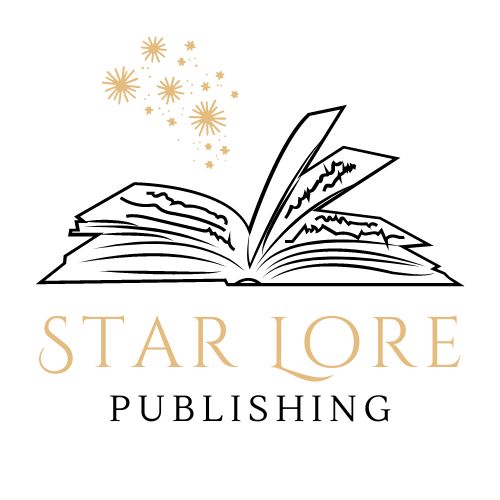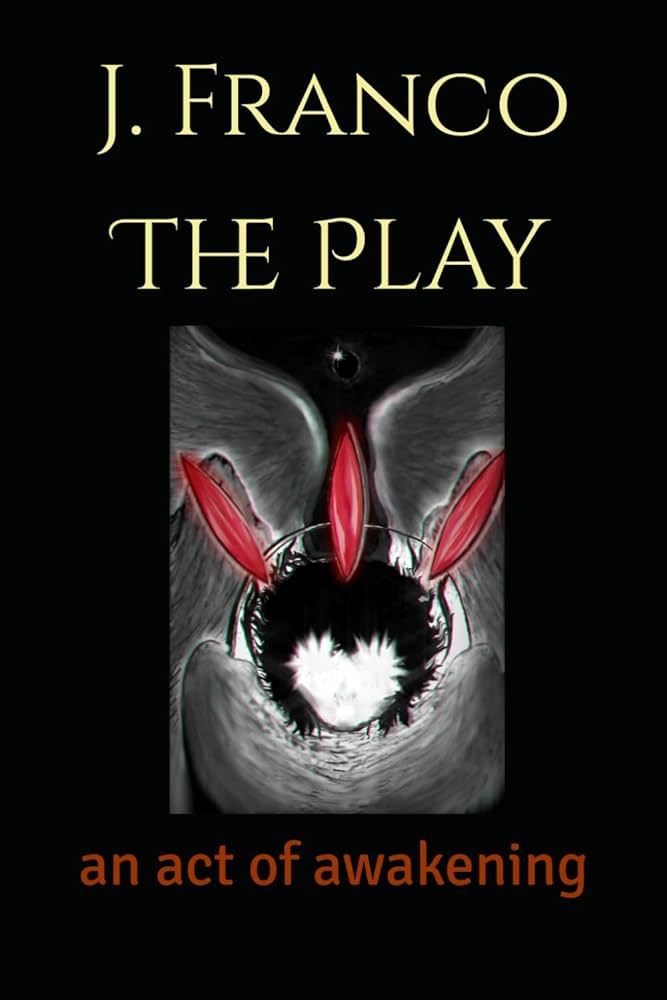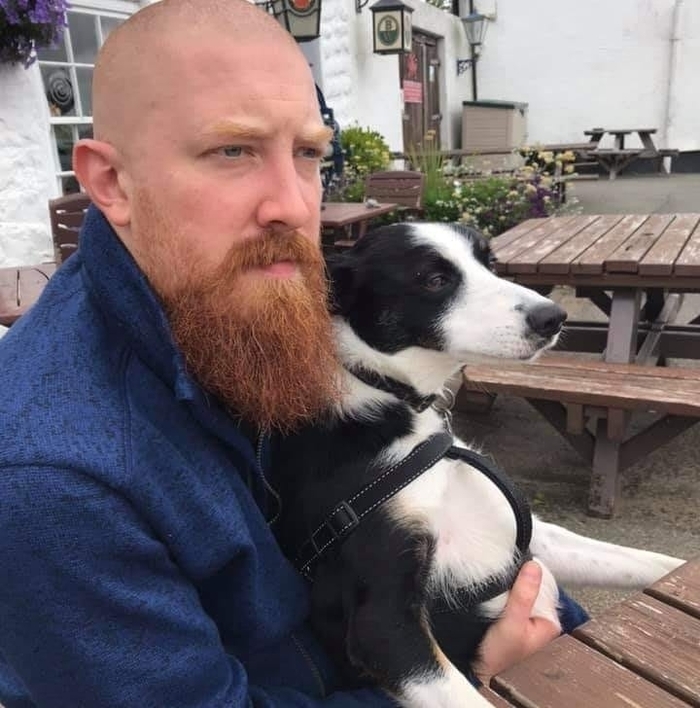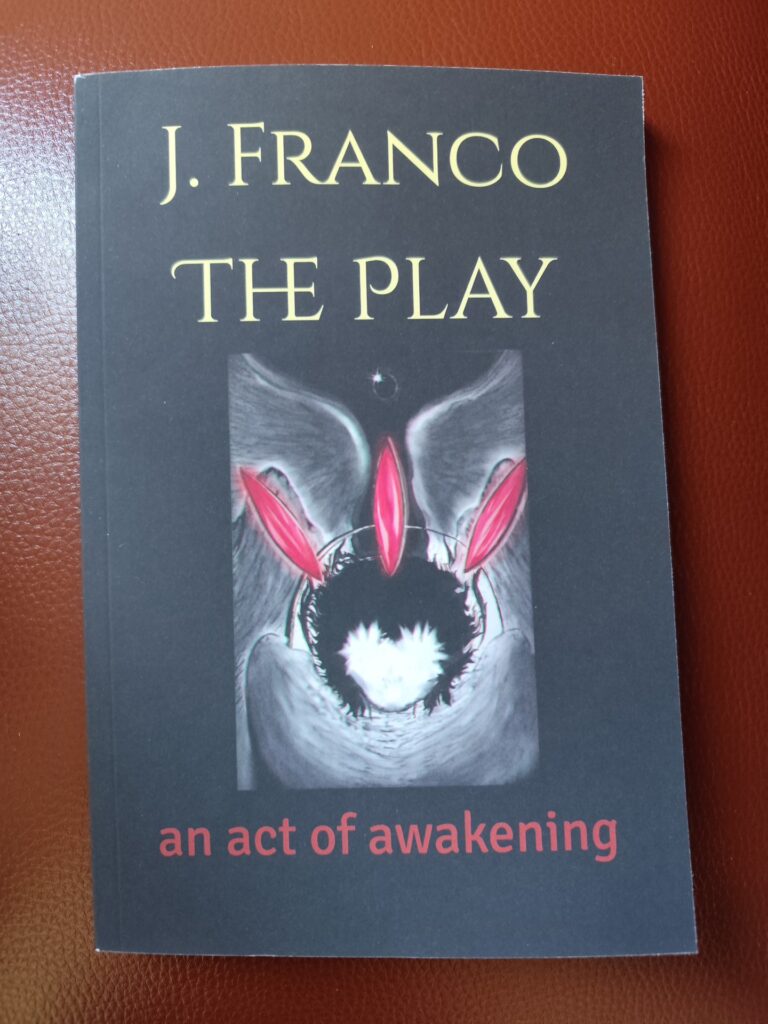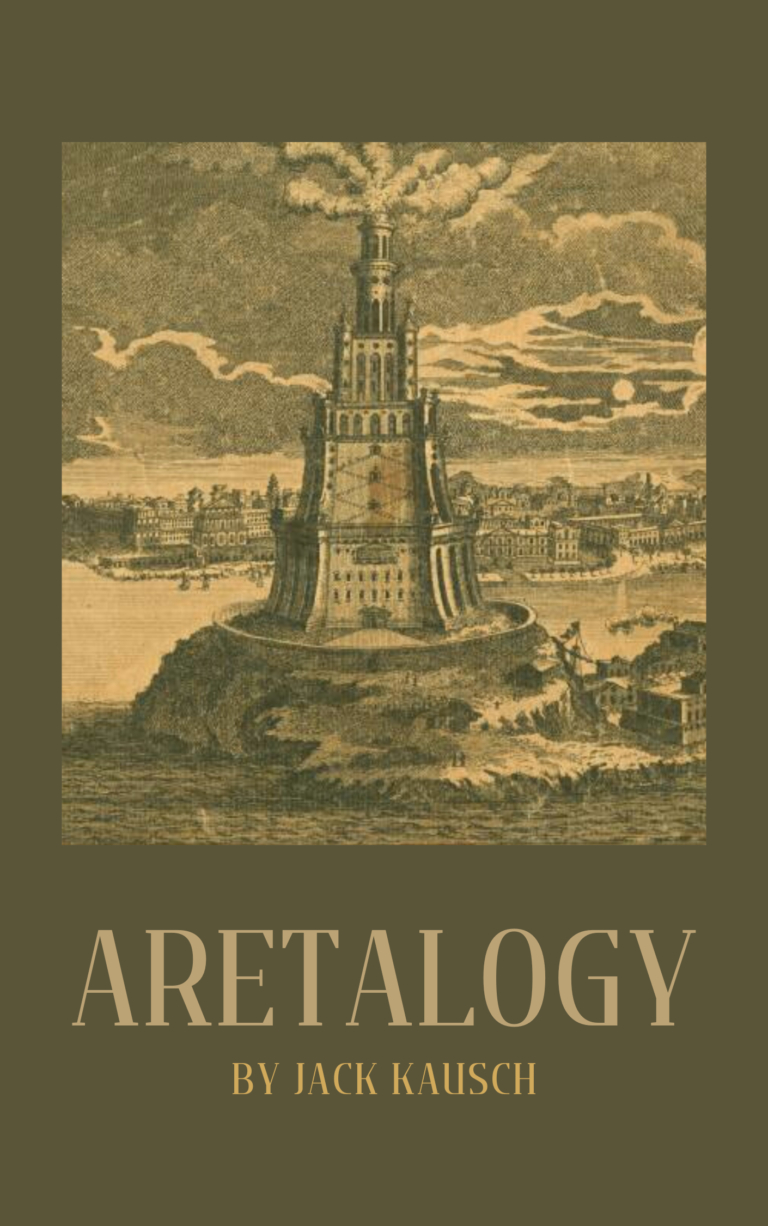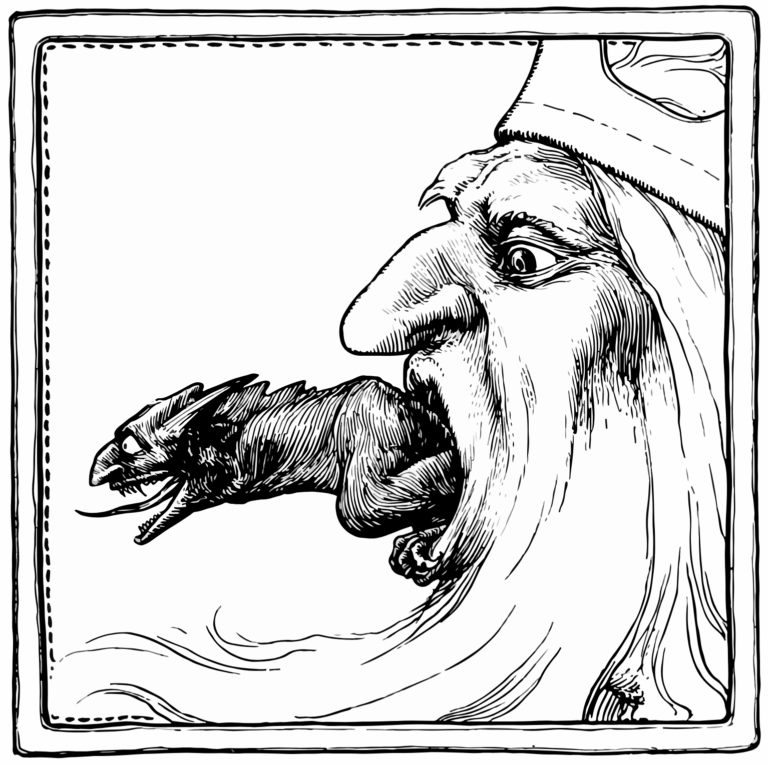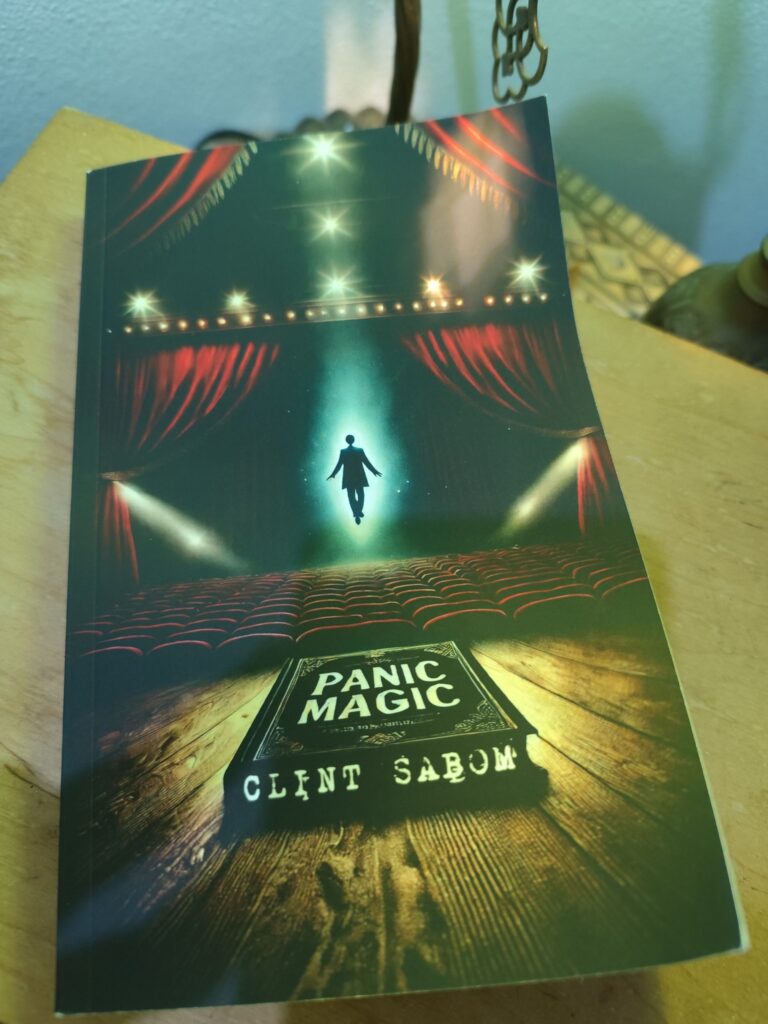Interview with Eric Schoch, author of Apotheosis
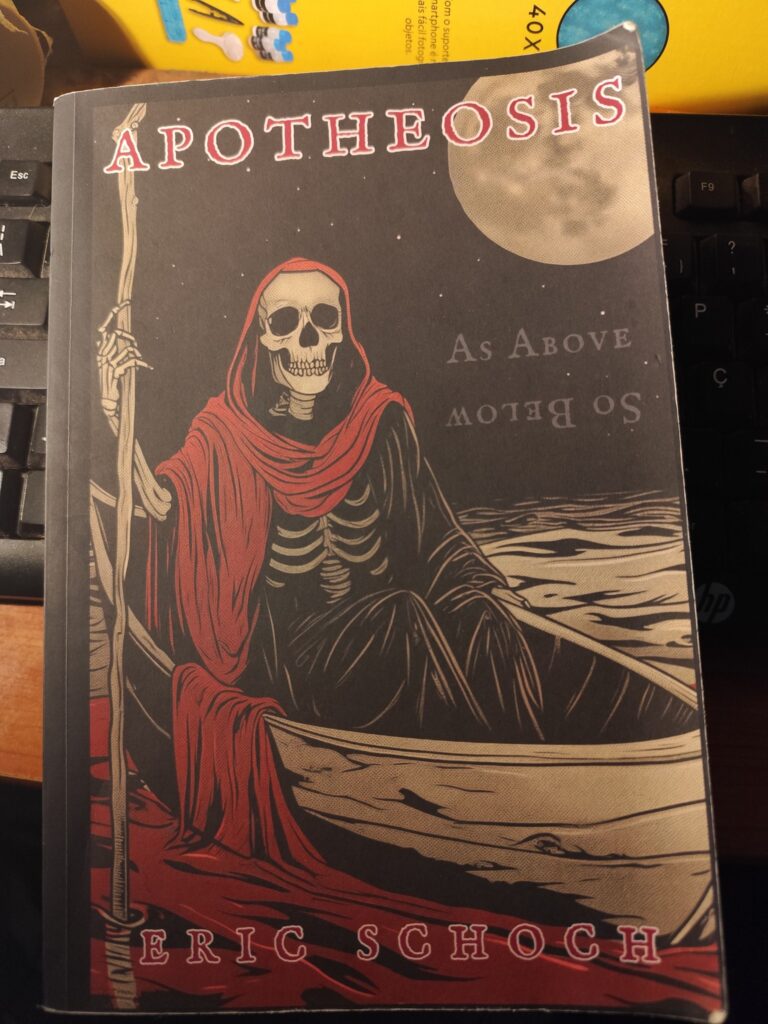
Matthew Sinclair is immersed in the intricate theological tapestry of his manuscript, “Under the Mountain of God.” As he delves into its pages, he grapples with his narrative’s evolving themes and the inherent insecurities of authorship.
In this interview we seek to know Eric Schoch better as well as his book and characters such as Matthew Sinclair. Eric’s title “Apotheosis” has been for sure an impressive gift to the collection of our published books, and his work begs (or rather deserves) to be known by you.
KNOWING ERIC SCHOCH
SLP: Hello Eric. Reading your work, I could tell you have experience in writing, with skills that I usually see developed only through repeated practice and the fine-tuned sensibility of the writer who has undergone the various stages of transformation into the craft. When I investigated, I saw you have other published works. Before we start talking about Apotheosis, could you say something about them and how they may have led you to this point?
Hello! So I suppose I started writing many years ago and began with Apotheosis, under a different name. I decided my writing at the time wasn’t at the stage that might do the story I had, justice. Instead, loving horror, I tried to put my hand to short stories, and through different narrative techniques. Some were journal entries, others from the view of the antagonist and so on, to try and hone my skills as best I could manage.
SLP: You said that evangelistic Horror is a genre, and that if it isn’t, you will make it so. What do you mean by evangelistic horror, and what drives you to inspire this trend?
I have a deep spiritual side, and this comes out in a number of ways; horror isn’t often the medium people would expect. But good horror has a strong parable behind it, usually with good triumphing over evil. Evangelism is spreading this idea, that horror can be a useful tool for spiritual direction, and understanding that there exists a different unseen world around us.
SLP: For ten years, you have worked in the funeral business. Apotheosis is partly a meditation on death. Did your previous work have any influence on this?
Most definitely. In that line of work you can’t help but confront the idea of your own mortality.
Raised Catholic I was always confused by what actually came next and whether this idea of purgatory existed outside Christianity. It certainly does across many different faiths and can be an afterlife most of us might need.
SLP: How do you find that your bachelor’s in religious studies contributed to what takes place in Apotheosis? Is Apotheosis creating part of your sort of theology or synthesis?
Studying religion opens a new world around you, making you try to make sense of even the most mundane things.it also allows you to delve into traditions that you might never have considered, and see how these can merge and evolve with your own. Apotheosis is an amalgamation of all the parts of religions I could never leave behind and therefore became as much a part of my own spirituality as they did the story itself.
SLP: You are completing your Master’s thesis on Horror & Theology, did this reflect on the book and did the book help you reflect on your Master’s thesis?
I have a great love of horror as a genre. I think it allows for a greater expanse of spiritual thought alongside entertainment. The story of religion is the story of good and evil and horror is where that is most generally found. It always helps to have your own experience of delving into a subject firsthand before attempting to understand why others have done so.
SLP: Also, could you expand on the importance of the connection between horror and theology and how this connection works?
I suppose much as I said earlier. Religion is widely the story of good conquering evil. of the purpose to human existence in the face of horror. Even the most basic traditions try to understand why human suffering exists. Be it demonic, or alien, there is an antagonist to the universe we seek to discover.
SLP: How did your love for religion and esotericism grow? What drove you to engage with these topics?
When you have a love for horror and oddities as I do, you are generally bound to end up delving into research beyond what most people would consider ‘normal’. I have always had a thirst for knowledge I can’t seem to quench, and this has led to me to almost every religion in some form or another. Down paths people call “obscure”, or “weird”. I always like to play devil’s advocate in any situation of importance, it is the only way to reach the truth.
SLP: Could you tell us, in your view, the difference between religion and esotericism?
And are these two sides of the same coin or should they remain separated?
I have always known that what we see in this world is not everything there is. Religion is a pathway towards unveiling that hidden world. But there are other words that people often get confused with. Occult and esoteric simply mean ‘hidden knowledge’. This can be small elements of a certain religion or whole new ways of spiritual thinking. Esoteric thought is just another path that can be followed, or used to explain and solidify what you already believe.
SLP: In your biography, you mention the hills of North Wales. Could it be said North Wales functions as a muse? Does it inspire you? What is your relation with it?
Home of the Druids, how could it not. I’ve been lucky enough to work with some of these and even the head of the current order at one point. It is a spirituality that makes even the simplest walk through the forest a pilgrimage. It’s always amazing to think of who travelled in the same path you are walking throughout history. Britain has a crazy history of spirituality and horror in its measures. Hard to take a stroll anywhere in this country without stumbling across a piece of history. More than a handful of my shorter stories either dip into Welsh history or Druidry. The setting of Apotheosis is my own comprehension of the Druidic ‘otherworld’.
KNOWING APOTHEOSIS
SLP: Could you describe the character named Matthew Sinclair?
Matthew is supposed to be a simple character in the way that he is very human and therefore relatable. However, his complexity comes from how he responds to his ailments, both mentally and physically. He is there to demonstrate how our responses to the world around us directly shape our outcomes.
SLP: Is the name Matthew maybe a biblical reference?
Of course, Matthew the writer of the gospel is supposed to reflect the nature of this character initially in the idea that he, like Matthew Levi feels unworthy of salvation. Matthew Levi is also considered to be the teaching element of the gospels – one that allows us to reach our own understanding of what transpired in those days.
SLP: Both you and Matthew are writers, what are the similarities and differences?
I suppose we both suffer from the same mental state, more so than I would like to admit. We have the same drives and the same wants. There are times when I find myself feeling pushed out of certain areas of society due to my OCD, which I felt drove Matthew’s self-deprecation.
SLP: Would you describe Henry? What or who inspired this character?
Henry was to be the ideal crusader. A mirror to Matthew both physically and mentally in many ways. Perhaps more like a distorting mirror from a funhouse. I wanted someone so driven by his devotion and faith that he was utterly unable to think of his afterlife anywhere other than the grace of heaven. Henry shows the true meaning of the phrase, ‘the path to hell is paved with good intentions’.
SLP: Like Henry and Matthew, are you prone to intense dreams, and have you ever done dream work? Did dreams influence the writing of Apotheosis?
I have practised dream work over the years, which is where I tend to get the best imagery for the setting. I tried to guide myself through the whole of the Annwn either through persuasive dreams or guided mediation and ended up letting the flow of the story play out according to what came through, rather than mapping the journey beforehand.
I had a singular extremely vivid dream/nightmare in 2012 that showed me Henry for the first time and came with a dire warning: ‘violence only ever leads to more violence.’
SLP: You can see most things are alive in the otherworld described by Apotheosis. Would you say this book draws on animism? If so, how and why?
The Annwn is based on the Celtic Otherworld, and I did wish to keep the animistic side of that very much alive. Essentially the realm is an environment of spiritual reflection, therefore the spirit we take to the other side will adapt to its environment in this way. The rocks, rivers and trees are embodiments of spiritual progresses and hinderances. Personally, I struggle to see how nature would not wind its way through into the afterlife, be it fox or foliage. Maybe just not in the way we would expect.
SLP: Could you maybe give us a word about the Baron and Eris and the process of their creation?
I always love when stories have a very vague backstory to some characters. Of course we all love to read about those, possibly in the future, but I wanted at least one utterly absurd creation without explanation, without reason, that simply existed. That was the reasoning behind the Baron. Someone you could drop hints towards their origin, or maybe who they were in a past life, yet never have to reveal and let the reader take from that what they will.
Eris was originally going to be the protagonist, and have Henry drop in and out as needed. I thought it best to have a more powerful figure doing the heavy work beside him, instead. My study of classics gave me the name and hinted toward her role, being the goddess of chaos who incited the Trojan War. As the Annwn is half way between heaven and hell, I decided I would have a group of people tasked with guarding such a place, which meant they would have to be, themselves, between these places. I think Eris captures that conflict quite well.
SLP: You describe certain demonic chiefs in this book with theological and iconographic elements that may be hard to find by any other means. How was this revealed to you?
Departing from the grimoires and tomes such as Lesser Key of Solomon, I wanted a universe able to evolve and change. People read Milton’s Paradise Lost and expect that demonology remains the same since the fall. The idea that certain powers and chiefs can alter their allegiances, or their primary goals gives a deeper understanding. I did keep some in line with older grimoires from Johann Weyer and the Ars Goetia, though as I worked through the story in meditation, I found their aspects altered.
Thank you!
